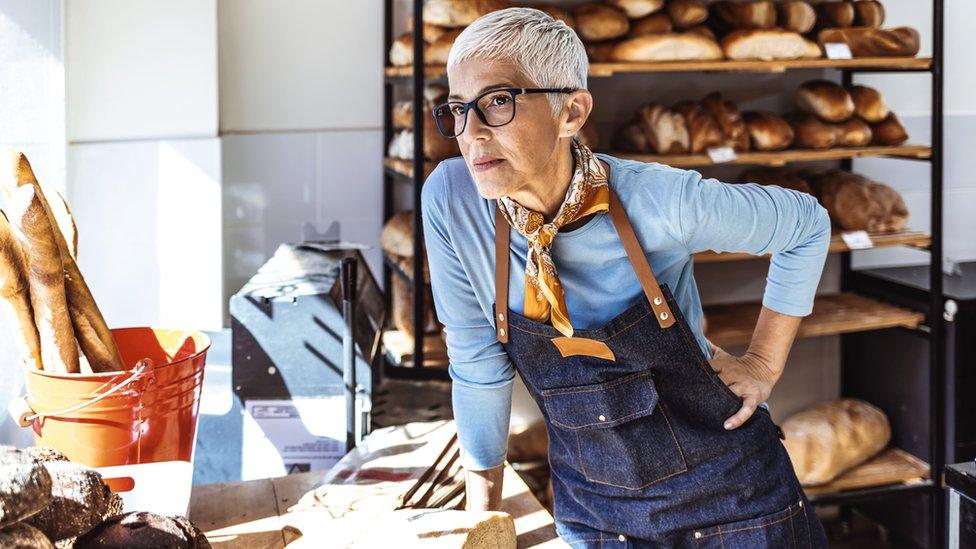Firms going bust on track for worst year since 2009
- Published
- comments
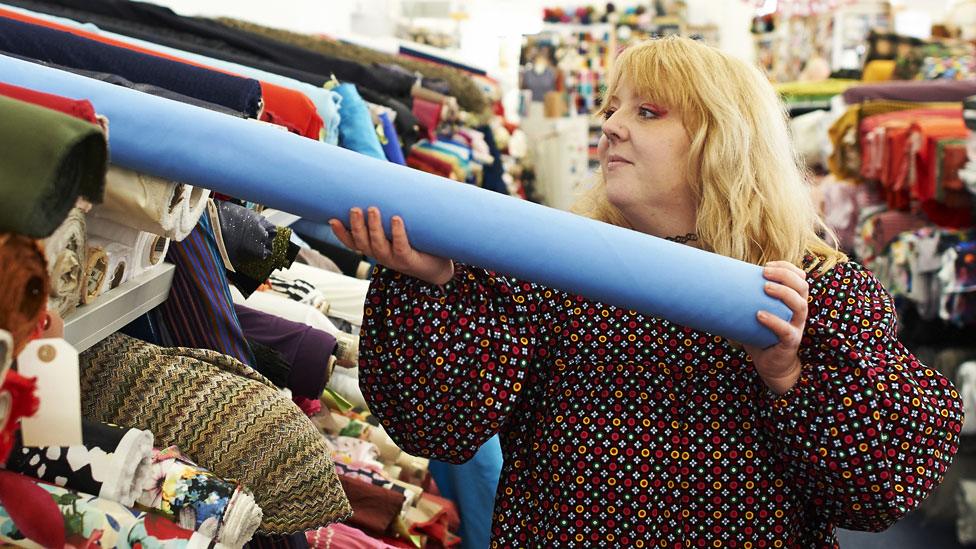
The number of companies going bust this year is on track to be the highest since the depths of the financial crisis in 2009.
Insolvencies rose 10% from a year ago in the three months to the end of September, the latest official figures for England and Wales show, external.
There has also been a sharp rise in the number of firms at risk of going bust.
Firms in "critical financial distress" jumped 25% in the last three months, insolvency expert Begbies Traynor says.
They are defined as having county court judgments exceeding £5,000 against them - often a precursor to going under.
Dean Euden, a wine merchant from Cardiff, has already wound up his business. "I thought Covid would be the toughest time but actually the harder times came after," he said.

Dean Euden had to shut his wine merchants as people cut back on luxuries during the cost of living crisis
"The cost of living crisis meant people had less money to spend so I closed the shop and went online but there just wasn't the same spending power in the market," he added.
"I couldn't make ends meet, couldn't pay my suppliers, couldn't pay myself. That's when I realised it wasn't a viable business anymore."
There are nearly 38,000 companies in critical financial distress, according to data prepared by analysts Red Flag for Begbies Traynor.
Julie Palmer, from Begbies Traynor, said this was down to a combination of higher inflation and borrowing costs twinned with weaker consumer confidence and demand.
"Tens of thousands of British companies are in financial dire straits now that the era of cheap money is firmly behind us," she said.
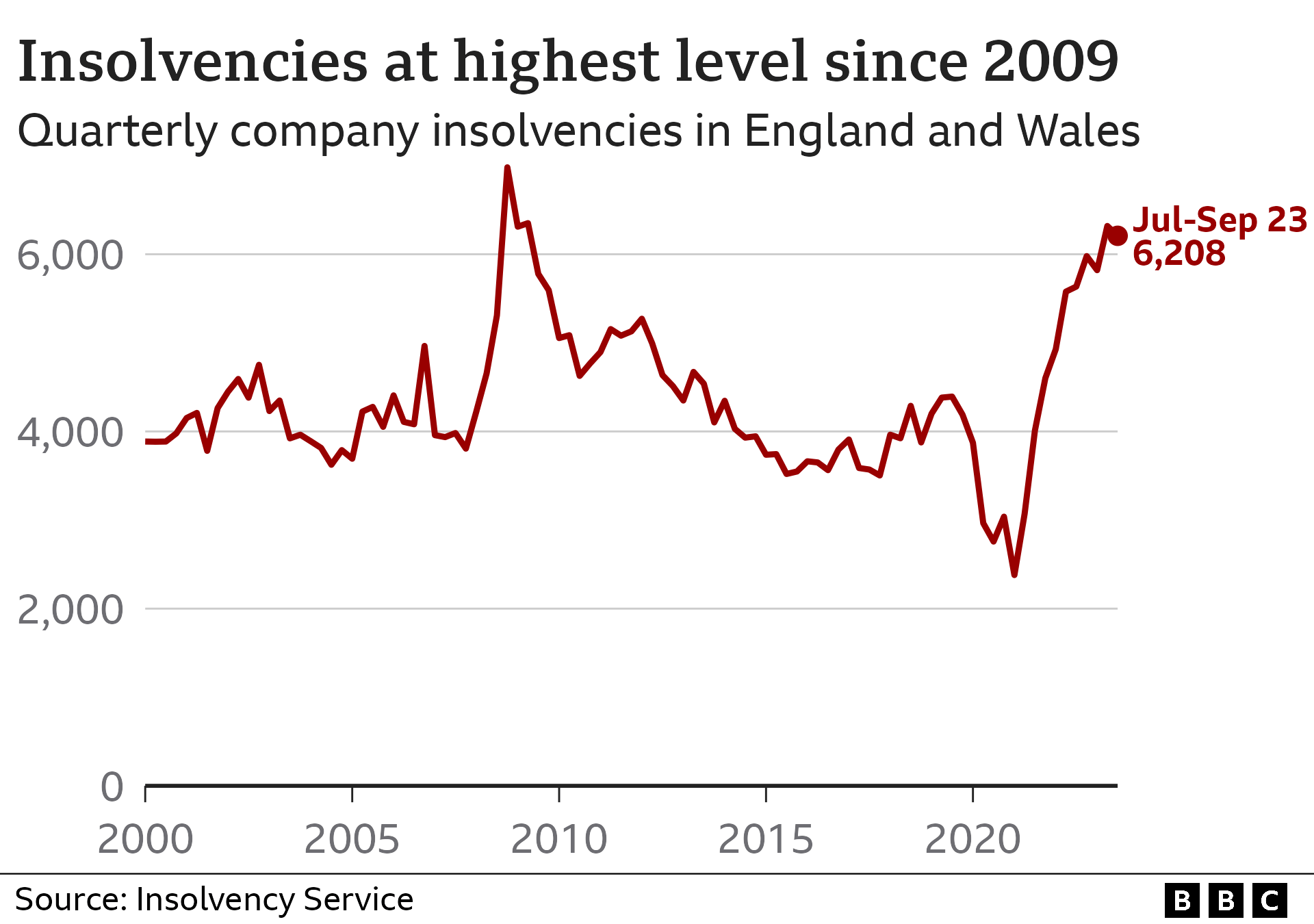
"Businesses that had loaded up on debt at rock-bottom rates, and were only able to cling on during the pandemic thanks to government support, must now deal with a financial reality check as higher interest rates hit working capital for the foreseeable future.
"Taken together with stubbornly high inflation and weak consumer confidence, many of these businesses will inevitably head towards failure."
The construction sector saw the sharpest increase in companies facing critical distress with an increase of 46% compared to just three months ago.
That came as no surprise to Ceri Lee, director of Cross Group Building Works in Cardiff. He said while his firm had enough work to survive, higher borrowing and material costs meant a lot of people could not justify investing in home improvements.
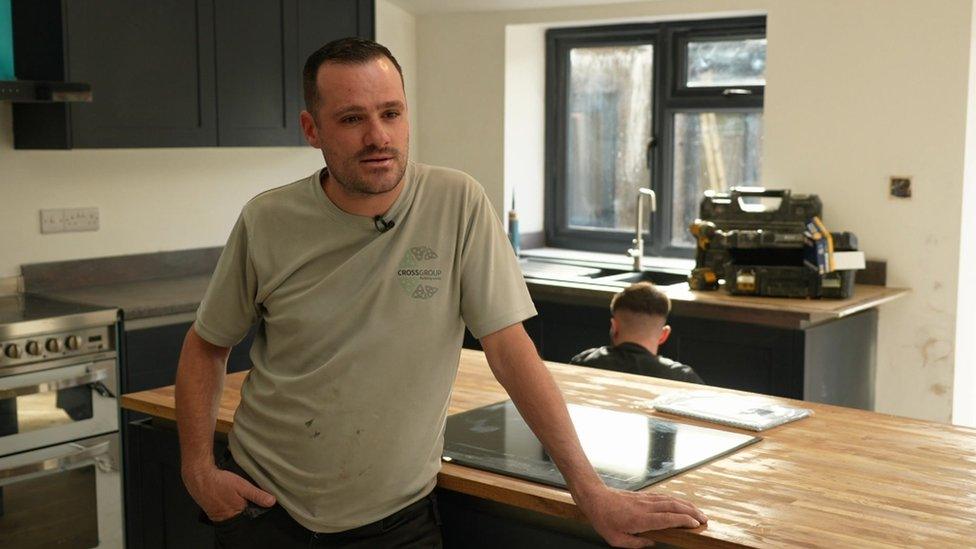
Ceri Lee, the director of a construction company, said many people were holding off on home improvements
"We've noticed a massive change since last year," he said. "Customers are getting hit because interest rates have gone up. They've got to make sure they are going to get out of the property what they are putting into it and with house prices going down a lot of customers have decided to ease off."
Mr Lee also said the volatile price of materials added more pressure and pointed to some timber panels they were installing in a home extension.
"These timber panels last year cost £56, this year they're £129 each and there's a limit to how much you can pass on to the customer because you just won't get the work so it comes out of your profits," he said.
"Pricing jobs is guesswork now. You go to some jobs blind - you wake up in the morning, things have gone up but you daren't go back to the customer because you might lose the job."
Support measures during Covid - including furlough, bounce back loans and forbearance on the part of HMRC - kept company failure rates low but those supports have fallen away at the same time as inflation and interest rates have risen hitting company bottom lines and their customers pockets.
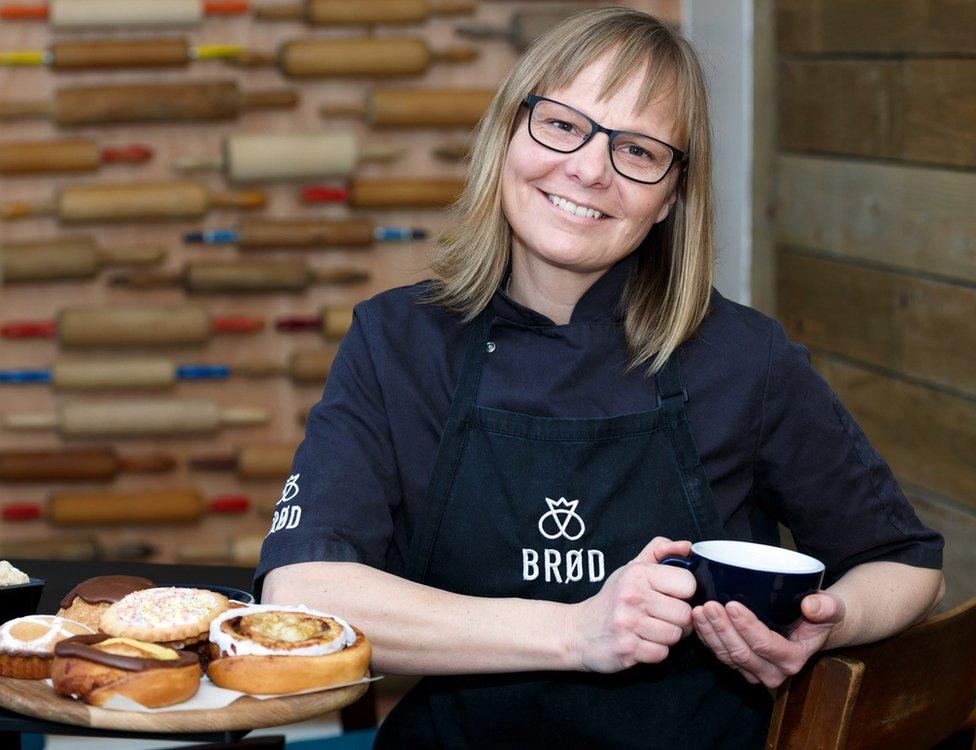
Betina Skrovo said running her bakery and coffee shop businesses feels like climbing a mountain
Betina Skrovo runs a bakery with coffee shops in Cardiff and Penarth and said running a business now was gruelling and precarious.
"We felt looked after during Covid but now we have to pay back all the support we got and it's being sucked out of us just as we have issues with fuel and electricity bills," she said.
"Everything seems like a mountain and as you climb it, you keep slipping down. There's times when I say - I hope the dishwasher doesn't break, I hope the fridge doesn't break its that fragile. There's times when I can't pay myself. It if wasn't for my team I probably wouldn't keep going."
Ms Palmer from Begbies Traynor said she was hearing similar stories from other company directors who are phoning her company in increasing numbers asking for advice and saying they feel they have nowhere else to turn.
"We call it director fatigue," she said. "There are no solutions out there at the moment, and at the same time it's a pretty buoyant employment market so a lot of business owners are saying 'I just can't do this anymore, and I might as well just work for somebody else', and that's the choice they're taking."
Related topics
- Published24 January 2023
